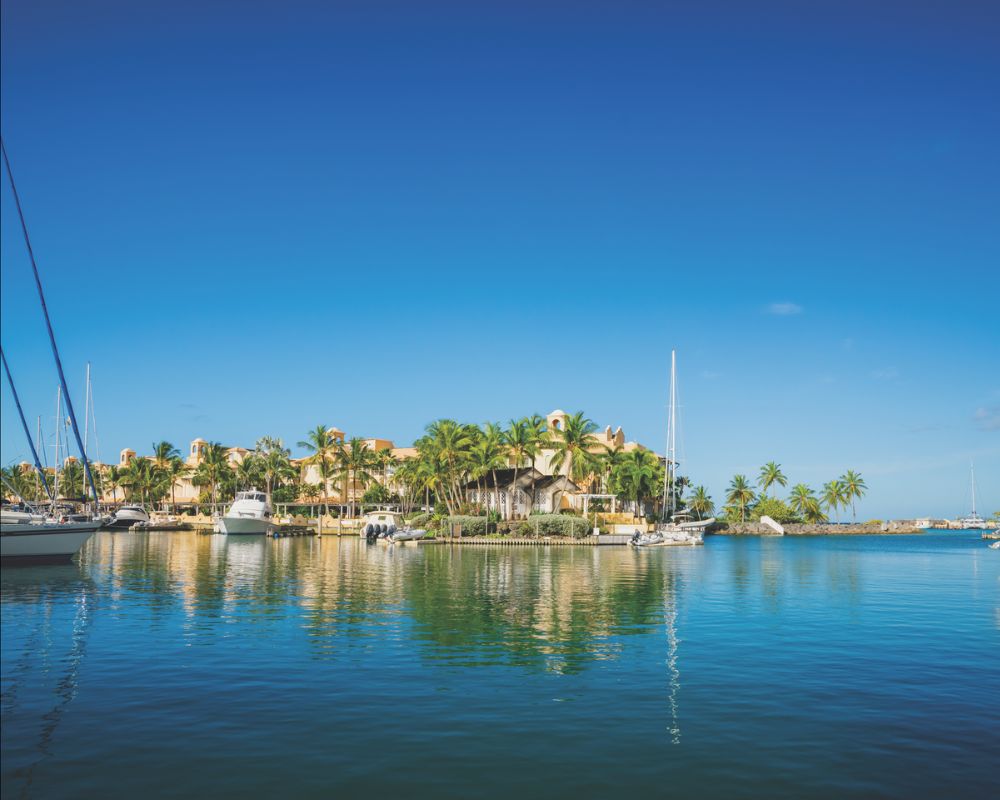-21.avif)
As we in the Caribbean find ourselves in the middle of another hurricane season – one that is anticipated to be, and already proving to be 'above-normal' in activity – we count our losses once again and look to see what we can do better or differently in the coming months and years to better equip ourselves to deal with this ever increasing threat. Such is life on the vanguard of global climate change, where the challenges extend way beyond the spectre of direct weather-related damage from extreme events, but are compounded by vulnerability to other related events such as sea level rise, climate induced sargassum explosion, drought, depleted ground water and crop failure to name a few. The irony of all this, as repeatedly expressed so eloquently by our Prime Minister Mia Amor Mottley, is that the worst equipped to deal with Climate Change are often those who are on its vanguard. Regrettably, one of the main reasons for this, along with their geographical location, is a historical transfer of wealth from these territories to other larger nation states. When you add the legacy of COVID to the two massive wars in Russia/Ukraine and Israel/Palestine to the mix along with other world events you can see that 2024 is one of severe global challenge.
One emerging tool in this fight to mitigate against the effects of Climate Change is insurance. However, a study in 2022 by the European Insurance and Occupational Pensions Authority (EIOPA) estimated that approximately only a quarter of the total economic losses caused by extreme weather-related events are insured. We’ve seen this recently with the massive losses experienced by our fishing industry with the passage of Hurricane Beryl – with many vessels uninsured. This massive gap between insured and uninsured losses is an area that could be addressed to help future proof communities against ever increasing losses. Cover however must be relevant in addressing the risks at hand, and recent experiences in Barbados have caused insurance to be questioned following the industry response to the COVID-19 pandemic, the Soufriere ashfall and the impact from Hurricane Elsa in 2021. In these three examples, coverage was not forthcoming due to a combination of exclusions and policy deductibles.
The challenge therefore is for insurers to look for innovative solutions as well as to leverage their position through for example incentivizing traditional insurance products with climate related risk management options in exchange for lower premiums or discounts. Hence, resilient construction such as anti-flood doors or wind resistant glass panes and roof supports could help close the insurance gap and at the same time make properties more resilient. Policies also need to be tailor made to suit the emerging risks and cover for traditionally excluded perils needs to be looked at.
Thus, revolutionary products such as the new Regional Economical Agri-Insurance Programme (REAP), which is being launched in partnership between Lynch Caribbean Insurance Brokers and the Caricom Secretariat, will provide excellent mitigation of the uncertain future presented by Climate Change. The need for such a product was championed at a Caricom level as far back as 2005 by the Hon. Dr. Bharrat Jagdeo in his seminal work known as the Jagdeo Initiative, and we now see one of his main pillars, Agricultural Insurance, coming to fruition in concert with the 25 by 2025 Food Security initiative.
This insurance will serve to help future proof farmers through de-risked lending for farming and fisheries sectors, reduced budget volatility through transferring climatic risk to the private sector, reduced shock to the sector following droughts, storms, or other climate events, food security for nations and job creation through stability and security for the sector. All of this is possible through the coming together of the Government and Private Sectors using the latest computer and weather technology to assess weather data at the smallest of levels to reduce basis risk and ensure easy access between farmers, the Governments and the insurance product.
Similar alternative approaches to insurance need to be explored for individuals and businesses to thrive in the coming years, and all as part of a disciplined risk management process.
This process starts with consulting your risk advisors and conducting a thorough analysis of your risk profile to ensure that it meets the demands of the new realities. A full review of your coverage terms needs to be done so that plans can be made for any gaps. Review your insurers financial position ensuring that they remain stable given the environment and can respond in your time of need.
Obtain and analyze alternative options to help you manage costs, once you have good control over the risk assume higher retentions/deductibles or self-insure. The peace of mind from your thorough risk management programme will allow you to focus on those growth and investment opportunities and ultimately thrive.
James Peirce
Group Director of Business Development
Lynch Caribbean Insurance Brokers
-01.png)
**This article was originally published in the 2024 edition of Business Barbados. It was updated on 10th July 2024.





-7.avif)









